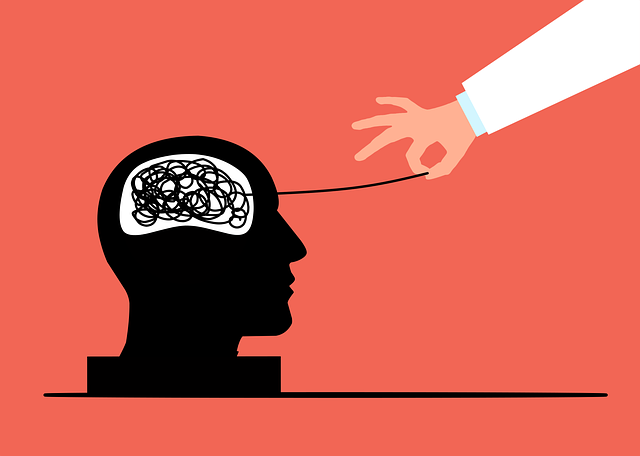When Guilt Feels Like It’s Always Deserved
Guilt can feel like an undeniable truth, an unshakable verdict passed down before we even have the chance to examine our actions. There’s a voice inside that insists, if I feel guilty, it must mean I’ve done something wrong. No room for nuance, no space for mercy—just the crushing certainty that I am at fault. This belief turns guilt into a shadow that follows everywhere, coloring even the smallest choices with a sense of moral weight. And when that guilt lingers, it starts to feel like more than just emotion; it feels like a statement about who I am.
This kind of guilt is often reinforced by past experiences—growing up in environments where mistakes were met with shame, where love felt conditional, where being “good” meant never disappointing anyone. Over time, guilt becomes not just a feeling but an identity, a sign that something is fundamentally wrong with who I am. It’s a weight that never fully lifts, always waiting to remind me of my shortcomings, no matter how much I try to make up for them.
Guilt as a Measure of God’s Approval
It’s easy to equate guilt with God’s displeasure, as though every pang of remorse is a direct message from Him. If I feel guilty, does that mean He is disappointed? Have I failed Him again? This thinking creates an exhausting loop: the moment I recognize guilt, I assume I must first fix whatever I’ve done before I can come back to Him. Worship feels hollow, prayer feels unworthy, and I retreat—convinced that I need to purify myself before I dare to stand before God again. But is that how He really sees me? Or is it just the weight of shame distorting my perception?
God does not call us to live in a state of perpetual guilt. His grace is not reserved for the already-clean, the ones who have everything in order. The idea that I must fix myself before approaching Him is not His truth—it is the voice of shame masquerading as holiness. The entire purpose of grace is that I am not required to carry my guilt alone. The very moment I feel unworthy is the moment I am most invited to step closer, not further away.
The Hypervigilance of Always Being on Trial
When guilt is a constant presence, hypervigilance takes over. Every interaction is analyzed, every decision double-checked. Did I say the wrong thing? Should I have done more? Did I offend them without realizing it? The mind stays in a relentless state of scanning for failure, trying to preemptively catch mistakes before they can turn into guilt. But this only leads to exhaustion, because perfection is impossible. No matter how much effort is poured into being good enough, the guilt remains, whispering that it is never enough.
This level of self-surveillance creates a deep sense of anxiety. It leads to over-explaining, over-apologizing, and an inability to trust one’s own judgment. Even when there is no clear wrongdoing, the fear of being at fault lingers. It keeps relationships from feeling fully safe and prevents true rest from ever taking root. The weight of hypervigilance is not a burden we are meant to carry.
Avoiding Spiritual Practices Until Guilt Is Resolved
Guilt has a way of halting spiritual life in its tracks. When the weight of wrongdoing—real or perceived—settles in, engaging in spiritual practices feels like hypocrisy. How can I pray when I haven’t made this right? How can I worship when I know I’ve fallen short? There’s a self-imposed exile, a belief that I must first clean up my mess before I approach God again. But grace was never about earning our way back. God doesn’t demand perfection before welcoming us in—He calls us to come as we are, even in the middle of our guilt, even when we don’t feel worthy.
The irony is that avoiding spiritual practices out of guilt only deepens the separation I already feel. The more I withhold myself from God, the heavier the guilt becomes. But when I let myself come before Him, even in my messiness, I find that He was never waiting for me to fix myself—He was waiting for me to let Him in.
True Guilt vs. False Guilt
Not all guilt is created equal. True guilt is conviction—it leads to repentance, growth, and reconciliation. It is specific, pointing to an action that needs correction, not an identity to be condemned. True guilt is a gift, nudging us toward healing and restoration. It acknowledges wrongs but offers a way forward.
False guilt, on the other hand, is vague and relentless. It thrives on shame, convincing me that I am the problem, not my actions. It lingers even after repentance, refusing to let go. False guilt keeps me stuck in cycles of self-punishment, even when I have done all I can to make things right. True guilt is a guide; false guilt is a prison.
Resolving False Guilt
Breaking free from false guilt begins with recognizing its voice. Does this guilt push me toward grace, or does it trap me in shame? Does it lead me to make amends, or does it tell me I will never be enough? God’s voice convicts, but it does not condemn. When guilt refuses to leave even after I have sought forgiveness, I must challenge it. I must remind myself of grace, of the truth that I am not meant to carry the weight of my mistakes indefinitely.
Healing from false guilt means practicing self-compassion. It means allowing myself to move forward without constantly looking over my shoulder. It means choosing to believe that I do not have to be perfect to be loved, that my mistakes do not disqualify me from grace. The path back to God was never meant to be a maze of self-punishment. He has already made the way clear. My only job is to step into it.
Freedom from false guilt is not about silencing conscience but about learning to discern truth from shame. It is about accepting that growth does not require self-condemnation. It is about stepping into the fullness of grace, allowing myself to be human, and trusting that God’s love does not waver based on my ability to get everything right. Because His love was never earned—it was given, freely and fully, even when I least deserved it.













